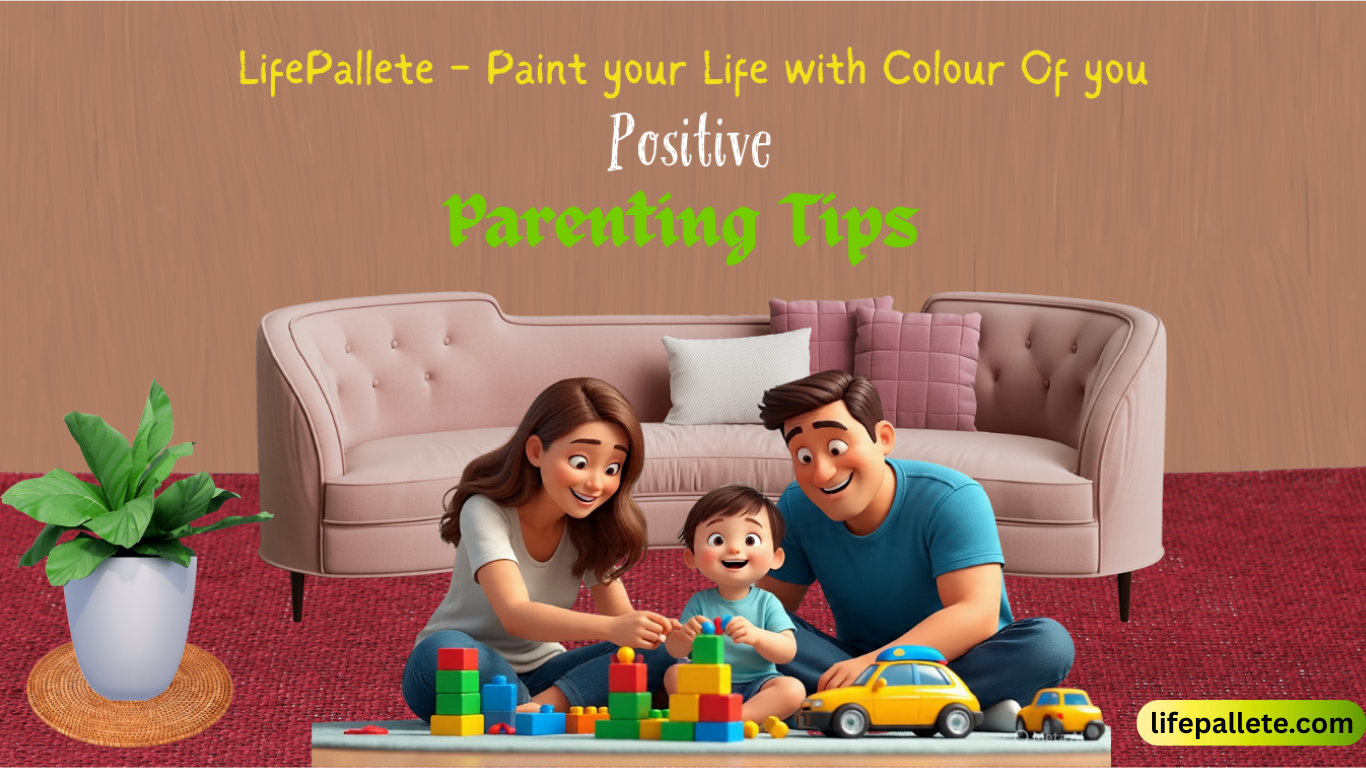Hello friends, I am your friend Radhika. Welcome to our page. Friends, today we will discuss a very important topic is Parenting. Do you know what the soul, happiness, and life of our home is?
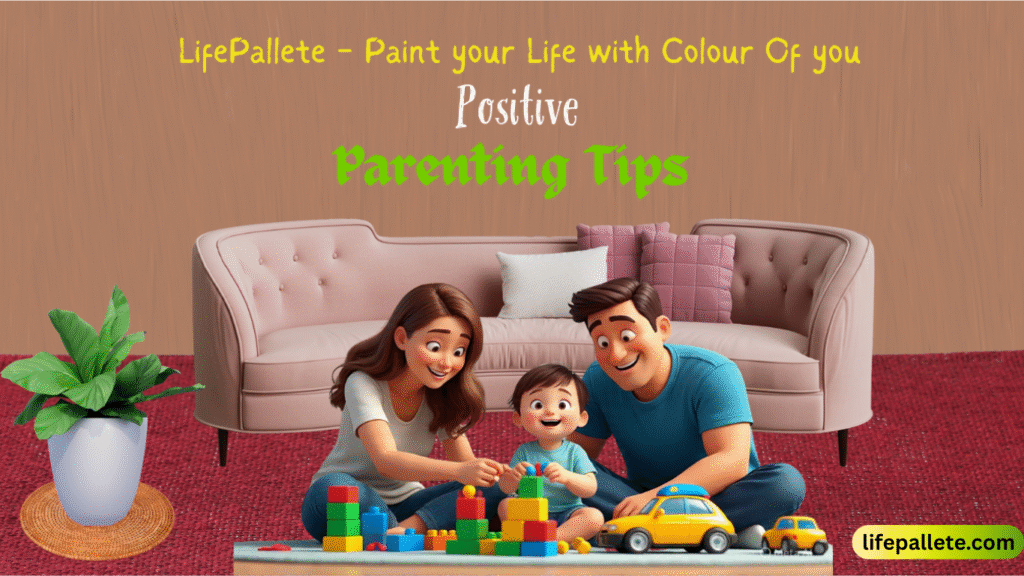
Yes, that’s right.
Children, the soul of our home. Our children are our children, whose laughter, mischief, noise, and wild antics bring life to all our homes. You may have often noticed that when a child leaves home for a while, the atmosphere becomes quiet. You may have heard the child’s family members say that without the child, the joy of their home is gone. If the child falls ill, he becomes quiet. Even then, the child’s parents say that without his mischief, the house doesn’t feel like home.
Parenting is that phase of our life in which parents not only raise their child from birth to adulthood, but also provide proper guidance, care, and education. It is not just about fulfilling the child’s needs, but about making them emotionally, socially, and mentally strong so that they never fear or give up in the face of life’s challenges and instead create a successful life for themselves.
Even the smallest things their children do mean a lot to parents. Parents are very happy if their child behaves well, studies well, and is also good at sports. However, when that same child misbehaves and neglects other activities, they are also very worried. We are overjoyed if someone praises our child for his or her good deeds, but embarrassed when our child does something wrong. We don’t have to tell our child the difference between right and wrong, we have to explain it.
Friends, teaching children the meaning of right and wrong is true Parenting. So, through this blog, we will explore the true direction of Parenting and why it is important.
The Importance of Positive Parenting
The Foundation of Values
Parents are a child’s first teachers. Whatever they teach, a child adopts throughout their life. Parents’ love and support give a child strong self-confidence, the power to think and understand, and the motivation to do so. Family education helps children connect with society and understand the importance of social values and relationships.
Good Parenting Practices in a Family
- Love and Patience – Children are always stubborn or get angry if their demands are not met. In such situations, explaining things to a child with love and patience is more effective than scolding.
- Open Communication – Parents should talk to their children daily, asking them questions about their activities to understand their interests and fears. We should understand their feelings and value even their smallest details.
- Giving time – Children need their parents’ time and attention more than expensive things. We often make the mistake of giving them toys or other things to keep them busy while you do your work, but what children need most is your time; they want to play with you.
- Freedom with Discipline – Children love to explore everything to satisfy their curiosity. It is important to teach children the difference between right and wrong, but they should also be given the freedom to pursue their interests.
- Set an Example – Children learn what they see at home. Therefore, parents should set a good example through their behavior. If parents follow good habits at home, children will follow those habits.
Is scolding or beating children right or wrong?
Friends, the biggest issue these days is whether scolding children is right or wrong. It’s becoming increasingly common for parents to scold their children, as everyone tells them that they shouldn’t be scolded; they should be treated with love. Scolding can make children rebellious, stubborn, or even instill fear in them towards their parents, leading to feelings of anger.
Friends, it’s true that excessive scolding, anger, and harshness, or even beating children for mistakes, all have a negative impact on a child’s mental and emotional well-being. Children’s minds are very delicate; excessive pressure can weaken them, which can negatively impact their future.
Dangers of Excessive Scolding
- Creating Negative Fears in Children: Scolding or angering children over every little thing creates negative fears about their parents. Even when necessary, children are afraid to share anything with their parents, fearing that their parents might scold them without even listening to them.
- Increased Anger in Children: When parents scold their children for their desires, instead of understanding the consequences of their desires, they simply scold them and silence them. This creates a feeling of anger in the child, and this feeling gradually becomes their nature.
- Hatred in children’s minds: When scolding and anger increase in children’s minds and it is not corrected with love and affection at the right time, then the place of affection in the children’s mind becomes empty and if they do not get that affection, then many times this empty space gets filled with hatred.

- Weak mental development of children: Sometimes children become so afraid of their parents’ scolding that they are unable to think anything beyond their fear. Their mental development stops because a feeling of fear comes in their mind before they can think and understand anything new.
- Children become emotionally vulnerable: When children become excessively afraid of their parents, they hesitate to share their thoughts with them and keep them to themselves. They are unable to share any doubts or fears they may have, leading to emotional weakness. They hold even the smallest things to heart and are afraid to face difficulties. This fear sometimes becomes negative, creating a distance between children and parents and preventing them from trusting their parents.
Positive scolding is essential
Friends, we’ve learned the negative effects of excessive scolding, but the question arises: should children not be scolded at all? This problem is seen in every family these days. When a mother or father scolds a child for a mistake, the elders of the house always get angry, asking why they scolded the child. They should be explained with love, as scolding will make them stubborn. In many families, this has become a major cause of family conflict.
Friends, I would like to say that every child is different and has a unique thinking and understanding ability. We agree that scolding children is wrong, but if parents do not scold their children at all for their mistakes or stubbornness, it will have negative consequences. Sometimes, scolding children is very important. How much and how to scold them depends on the child’s age.
Why is positive scolding important?
Positive scolding is important so that they can understand the difference between right and wrong. If a child is stubborn and the parents know that their stubbornness is wrong, and the child is not understanding despite loving explanations, then sometimes a little scolding is necessary.
- If a child is adopting bad habits or disrespects elders and has been repeatedly explained to him lovingly that this is wrong but he is not listening, then it is necessary to scold him because if he is not scolded, he will feel that he has not done anything wrong and will repeat it again and again.
- Children should have a positive fear, not a negative one, which will stop them from moving forward towards wrong deeds because if they do not have even a little fear, they will ruin their life thinking that no one will say anything to them.
- Along with scolding the child many times, punishment also has to be given if the child is not correcting his mistake even after scolding so that he realizes that if he makes many mistakes, he can be punished.
- Friends, children will have to face the outside world one day or another. Today, out of love, we can overlook our children’s mistakes and forgive them for every mistake, but this understanding will not forgive them for their mistakes. Make them realize that if our family members don’t forgive us, then no one outside will either.
Friends, we know that sometimes we or the elders in our family don’t like scolding our children, but it is true that if a mother, whose life is connected to her child, gets angry at her child or even slaps him, she feels the pain of the slap more than the child. But to ensure that the child does not go on any wrong path and is not criticized by people, she often has to take strict action.
Friends, we all know how mischievous our beloved Krishna was. His mother Yashoda scolded him a lot and even loved him a lot, so was her Parenting wrong?
- Why is Positive Parenting important?
Positive Parenting isn’t just about raising children, it’s about giving them the right direction. Positive Parenting is how parents discipline children with love, understanding, and guidance.
- Explaining things to children, not just scolding them.
- Teaching them rules, but lovingly, like a friend.
- Acknowledging their feelings and guiding them in the right direction.
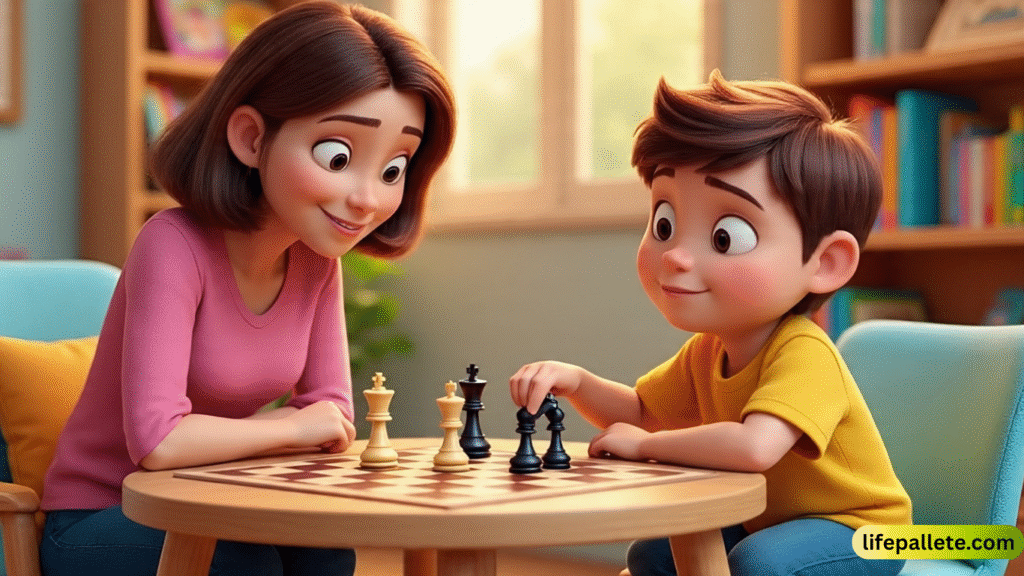

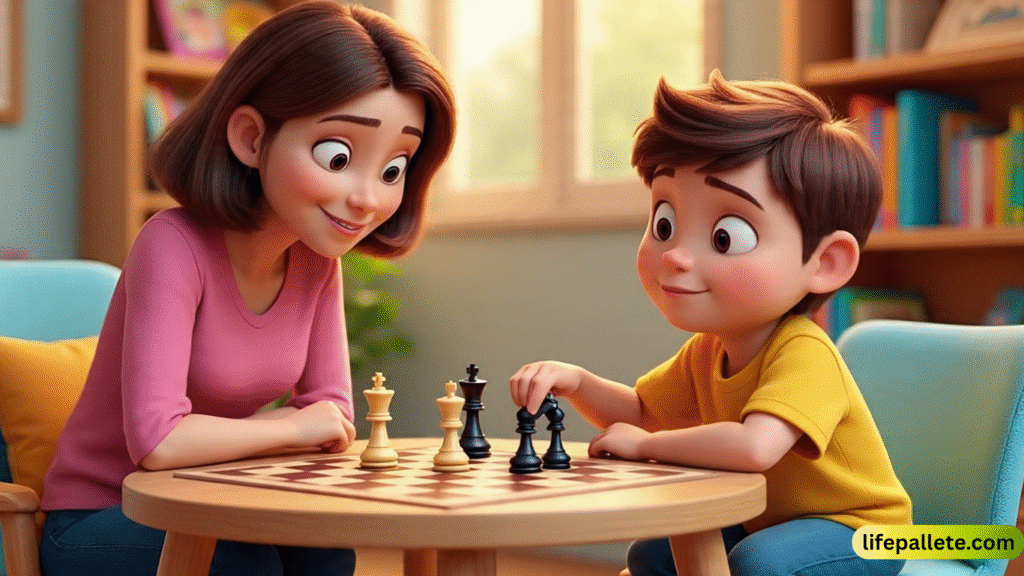
- Benefits of Positive Parenting
- Children’s self-confidence increases.
- They are able to express their feelings openly.
- Distance from bad habits is maintained.
- Children set their own boundaries.
- Family bonds are strengthened.
- Children know that if they make a mistake, their parents will scold them, but they will also support them.
- Children understand their parents’ nature. Our parents may forgive mistakes, but not crimes.
10 Golden Tips for Positive Parenting
1. Give Unconditional Love
A child’s greatest need is unconditional love from their parents. Parents should not burden their children with their own desires, preventing them from deviating from their own thinking. For example, we’ve often seen parents say, “Son, do you want to become a doctor or a teacher when you grow up?” Let children make this decision based on their interests so they can fully pursue their chosen field. Make them feel that you are always with them, whether they make mistakes or achieve success. When a child understands that they will be loved no matter what, they develop a sense of confidence and security.
👉 Example: If a child doesn’t score well on an exam, instead of scolding them, explain to them that they should continue working hard, and that you will always support them.
2. Be a good listener
Parents should spend time with their children every day and talk to them. Ask them about their day’s activities and talk about their friends. Parents often interrupt their children or respond quickly. But even the smallest things they say mean a lot to them. When you listen carefully, they will trust you and share their thoughts.
👉 Remember – listening, understanding, and then responding is the real secret to Parenting.
3. Spend quality time
The time spent with you is the most precious thing for their children, and they will enjoy it. Spend at least 20–30 minutes with them every day. No mobile phones, no TV during this time – just you and your child.

👉 Examples: Read stories together, draw, play their favorite games, or teach them new activities. This will make your child feel that they are most important to you and will also help them become an all-rounder.
4. Positive Discipline
Discipline is important, but not strictness. Children should be taught rules and boundaries, but they should be enforced with love and understanding. Children will learn by watching you. If you follow the rules in front of them, they will follow them and adopt them into their lives.
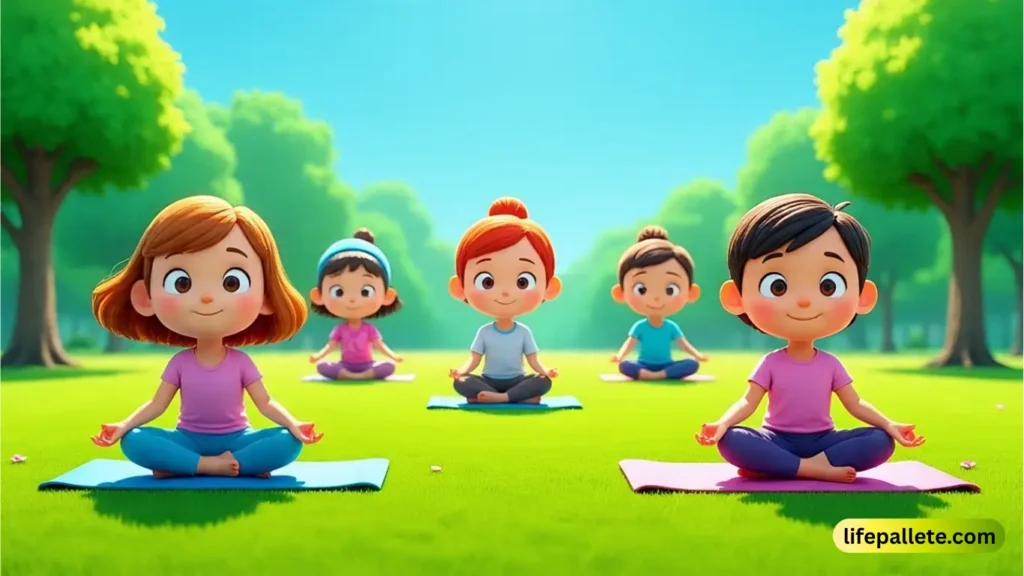
👉 Example: If a child is watching TV for a long time, instead of getting angry, say, “TV time is over. Let’s read a book together.”
5. Cultivate a Learning Habit
Children are naturally curious. Let them ask questions and explore new things. Books, stories, puzzles, and small experiments enhance their learning. Show and teach them new things.
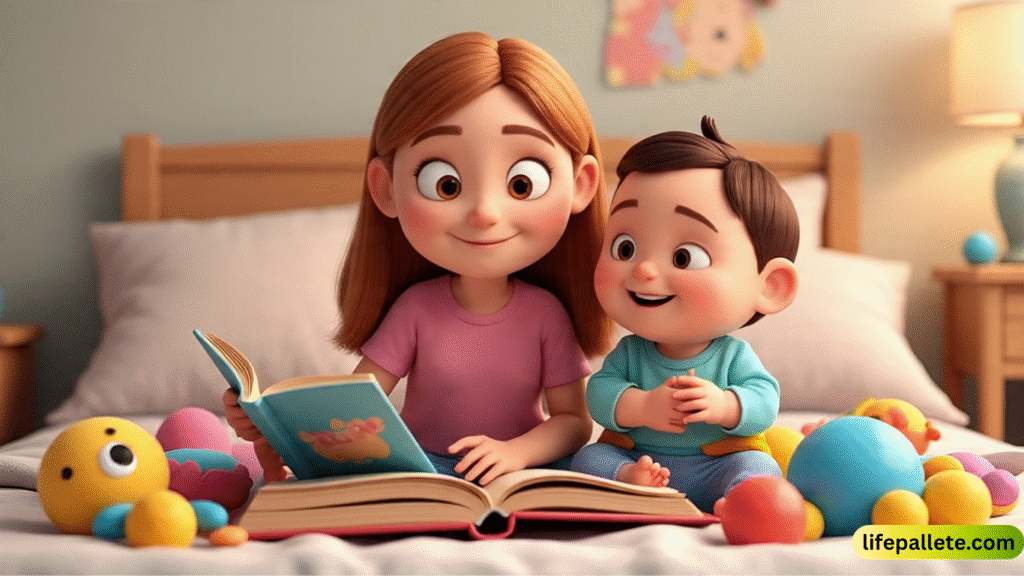
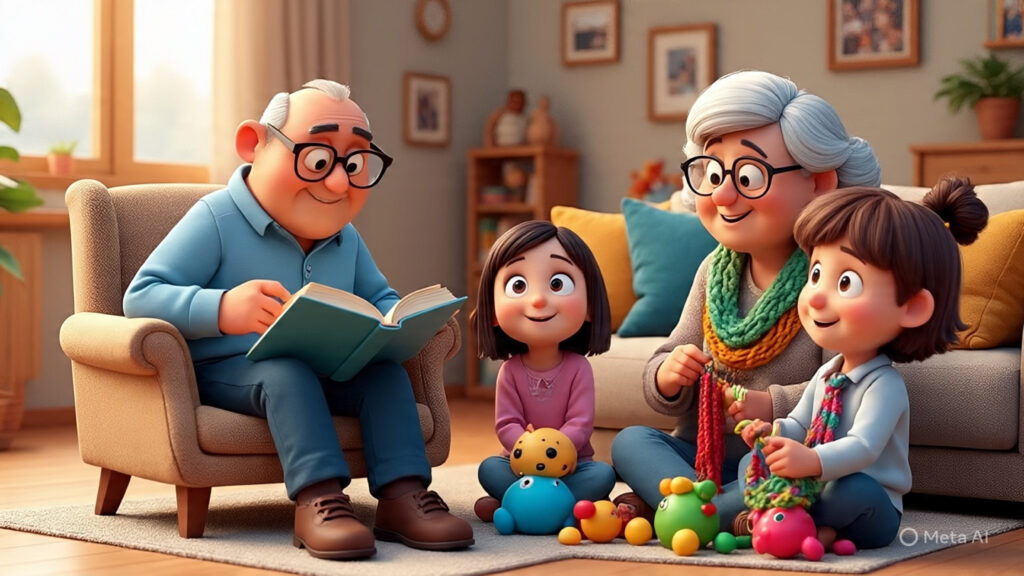
👉 Remember – education isn’t limited to school; real education begins at home.
6. Be a Role Model
Children learn what they see their parents doing. If you are honest, hardworking, and kind, your child will adopt these qualities. If you stay away from bad words and wrong places, your child will stay away too. If your child sees you using abusive language or engaging in wrong actions, one day they will adopt the same.
👉 Example: If you want your child to speak the truth, you must first always speak the truth yourself.
7. Praise and Encourage
Appreciate your child’s small efforts. This boosts their confidence and motivation. Praise their efforts, not just the results.
👉 Example: If your child draws, say, “Wow, that’s great!” even if the drawing isn’t perfect.
8. Teach Life Skills
Often, in our love for children, we forget to teach them certain things, such as helping their parents with household chores. Teach children not only academics but also basic life skills – such as taking responsibility, sharing, understanding the value of time, and becoming independent. It’s crucial to teach children basic skills, such as cooking and doing their own chores, so they can take care of themselves and become stronger when needed.

👉 Example: Give them small tasks, like packing their own bags or putting away their toys.
9. Adopt a Healthy Lifestyle
Children these days are often preoccupied with mobile phones and television. Encourage them to eat a balanced diet, exercise regularly, and play outdoors. Limit screen time and engage in healthy activities with the family.
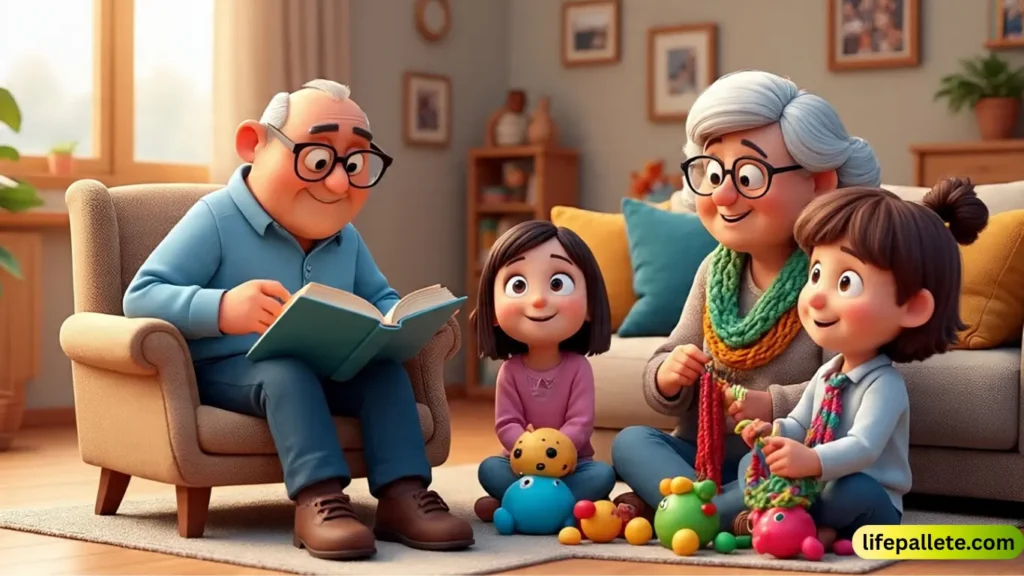
👉 Example: Go for a 15–20-minute walk with the family every day.
10. Becoming a Child’s Friend
The biggest step in Parenting today is becoming a child’s friend. We often make the mistake of forgetting to be their child’s friend in the hustle and bustle of Parenting. We must become our children’s friends, so that they trust you, so that they can come to you first to tell you about even the smallest of things. Even if they make a mistake, they can come and tell you. As a friend, you must fulfill your parental responsibilities. You must dance and jump with them on their successes, and you must also get angry and punish them when they make mistakes. You must also forgive them and make them correct their mistakes. So that they don’t take advantage of their parents’ love.

👉 Example: If a child breaks something, instead of yelling, remain calm and explain why it’s important to take care of things.
Pro Tip : Must Provide Religious Education
Friends, one thing I would definitely say is that children must be given religious education. Connect them with their God. Instill in them the habit of worship and prayer. This will develop positive energy in children. Children must be taught religious scriptures. They must be taught about Bal Krishna, Bal Hanuman, Ramayana, and Mahabharata so that your children can preserve your religious heritage. Nowadays, parents focus mostly on providing school education. They want their children to thrive in today’s culture and technology, rather than pursue spirituality.

Is it right to compare children?
Friends, it’s never right to compare children because every child has different thoughts, understanding, and tendencies, their desires, and preferences. Often, if we see a child dancing well, we wish our child could dance like that. If a child is getting good grades in studies, we wish our child would also get the same marks. If our child doesn’t perform as well as other children, we scold them. But the important thing to understand here is that your child may not be adept at doing what other children are doing, while your child may be a master and a leader in another skill. Here, you need to recognize your child’s talent and encourage them to pursue that skill. Every child has their own unique skills and expertise. So, if we compare two children in such a situation, it will create feelings of inferiority and make them feel that their talent is worthless. Due to this, even the skill in which he is skilled will become averse to it.
❌ Disadvantages of Comparison in Children
1. Decreased Self-Confidence :When parents repeatedly compare a child to others – such as a neighbor’s child, a sibling, or a friend – the child begins to feel inferior and feels that he lacks any qualities.
2. Increased Inferiority Complex : If parents constantly compare a child’s actions to those of other children and repeatedly insist that they imitate them, the child begins to believe that they can never do well, no matter how hard they work.
3. Feelings of Jealousy and Envy :Parents constantly praising other children and comparing them can create jealousy and negativity in the child.
4. Distance from Parents :Constant comparisons can cause a child to become emotionally distant from their parents and feel that their parents do not love them.5. Creativity is stifled : Every child brings unique talents. Comparison prevents children from discovering their true talents.
What should be done instead of comparing children?
- Recognize their strengths – Every child is different. Some are interested in studies, while others are interested in sports or art. Help them identify those strengths and encourage them.
- Provide a positive environment – Make them realize that making mistakes is also a part of learning.
- Teach them to set goals – Instead of trying to be better than others, inspire them to be better than themselves.
- Support instead of compare – Let the child understand that everyone’s journey is different.
Conclusion
Friends, Parenting isn’t the same for all children. Sometimes, some family members say, “We raised our children this way, and we never had any problems.” Every child has a different way of understanding things, which their parents know. Every family has a different environment. Saying we should parent our children the way our parents did for us is impossible, because everything changes with time.
Positive Parenting isn’t just a method of Parenting, it’s the foundation of a strong relationship between parents and children. When we guide children with love, patience, and understanding, they not only learn good values but also become confident and responsible. Positive discipline shows children the right path instead of scaring or punishing them. In today’s changing world, it’s crucial that parents maintain a friendly relationship with their children, understand their feelings, and give them the opportunity to express themselves openly. In this way, Parenting not only becomes easier but also brings balance and happiness in the personality of children.
“If you want to understand Parenting more deeply, taking help from some of the best Parenting books can also be a great option.”
“Thank you for reading! I’d love to hear your suggestions and opinions—please share them in the comments below. – [Priyanka]

